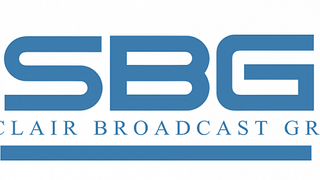Sinclair Deals Dozen TV Stations to Minority Owners

Sinclair Broadcast Group's latest version of its Tribune deal, filed Tuesday (April 24) with the FCC, includes new station spinoffs and in many cases identifies the buyers.
A dozen of the stations were sold to minority-owned companies, Sinclair pointed out, including Howard Stirk, owned by Armstrong Williams, and Standard Media, whose parent, Standard General, is headed by Soo Kim, a Korean American and former head of Media General.
It was still unclear whether that would be enough to satisfy the Department of Justice, which has had issues with Sinclair's control of ad revenue in its markets.
Six of the stations seven stations for which a buyer is to be announced are Fox affiliates, and a seventh is a CW. The New York Post was reporting that Fox would be the buyer of those seven.
That had been expected per previous reporting, but that was also per the last iteration of the deal, which has been changing, including, for example, divestitures in duopoly markets that were clearly to please Justice since they were not against FCC local ownership rules.
Sinclair still wants to own two of the top four stations in Indianapolis, a dual ownership that the FCC is considering allowing on a case-by-case basis per new broadcast deregulation that took effect Feb. 7.
Sinclair has also withdrawn its plan to divest WPIX-TV New York, and is amending the terms of the joint sales agreement and shared services agreement options for WGN-TV Chicago, which it is still spinning off.
Broadcasting & Cable Newsletter
The smarter way to stay on top of broadcasting and cable industry. Sign up below
Related: Allied Progress Buys Ads On Sinclair to Slam Sinclair
Sinclair, per its previous deal terms--filing number three as Sinclair attempted to get the deal to square with DOJ antitrust regulators and the FCC's public interest review--had planned to sell WPIX to Cunningham Broadcasting, but has terminated that agreement.
Sinclair is also trying to hold on to both KTVI and KDNL in St. Louis. Those stations are currently the top fourth and fifth stations, meaning they would not need a case-by-case review to be jointly held, but they sometimes switch places, so out of "an abundance of caution," Sinclair is making a "top four" showing in the event that case-by-case analysis is required.
Wall Street is still looking for DOJ's blessing before upping the odds on the deal getting done, according to one analyst speaking on background.
X factors for handicapping the deal include the UHF discount court case timing and what the DOJ suit against the AT&T-Time Warner deal signaled about which antitrust issues could arise in other deals. He said the AT&T-TW suit is "haunting a lot of other deals."
Then there is the question of whether this fourth iteration is actually the final deal that the FCC puts out for yet more comment. If not, a final decision on the deal might not come until late summer, or well over a year since it was first filed with regulators.
Currently the FCC’s informal shot clock remains frozen at day 167. The FCC has stopped the clock a couple of times as it waiting for new info from Sinclair.
The Coalition to Save Local Media (https://savelocalmedia.com/), a diverse group of stakeholders in the deal's rejection, was not impressed by the latest iteration of the deal. “Many details and specifics of the latest divestiture plan announced by Sinclair remain unknown. But what we do know is that Sinclair admits it will plan to skirt the rules through side deals with prospective buyers instead of fully divesting stations. The number of times Sinclair has had to correct this deal shows just how much it distorts the marketplace," the group said. “Earlier this week, the U.S. Court of Appeals for the D.C. Circuit seemed to indicate the unjustified and outdated UHF discount Sinclair is using in this deal could be completely gutted. But if the FCC moves ahead, you won’t be able to unring the bell." That is, unless the FCC conditioned the deal on the court not overturning the discount, according to one communications attorney. “This merger is not in the interest of consumers and would hurt local media across the country. We continue to call for meaningful time for review and public comment on the Sinclair-Tribune merger and for it ultimately to be denied.”The FCC plans to put the final iteration of the deal out for comment, and leave time for replies, FCC sources have told B&C/Multichannel News, which is why the commission did not start its deal-vetting shot clock for the previous two re-filings of the deal, waiting for the final version, if it passed Justice muster--to continue its public interest review. Coalition's eclectic membership includes the American Cable Association, Dish, The Blaze, Public Knowledge, NABET/CWA and Common Cause, united in the common cause of blocking the deal.
Contributing editor John Eggerton has been an editor and/or writer on media regulation, legislation and policy for over four decades, including covering the FCC, FTC, Congress, the major media trade associations, and the federal courts. In addition to Multichannel News and Broadcasting + Cable, his work has appeared in Radio World, TV Technology, TV Fax, This Week in Consumer Electronics, Variety and the Encyclopedia Britannica.

